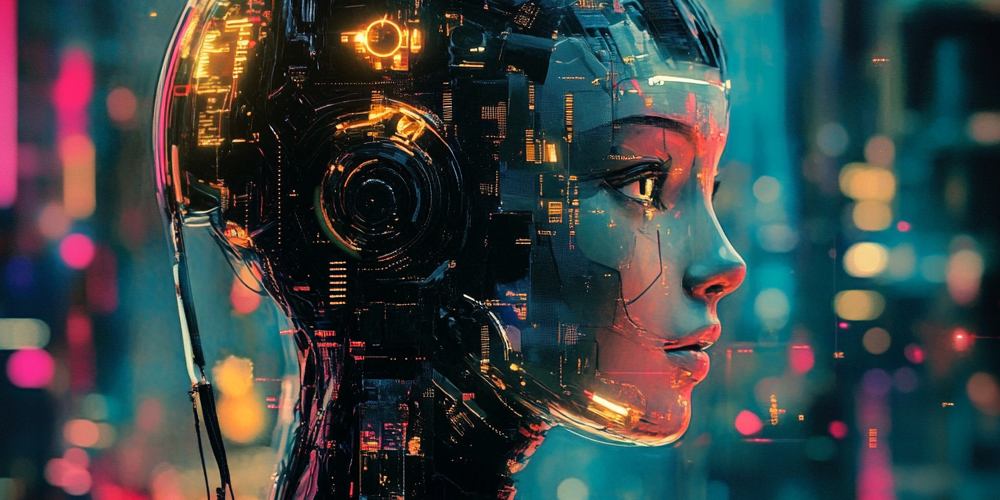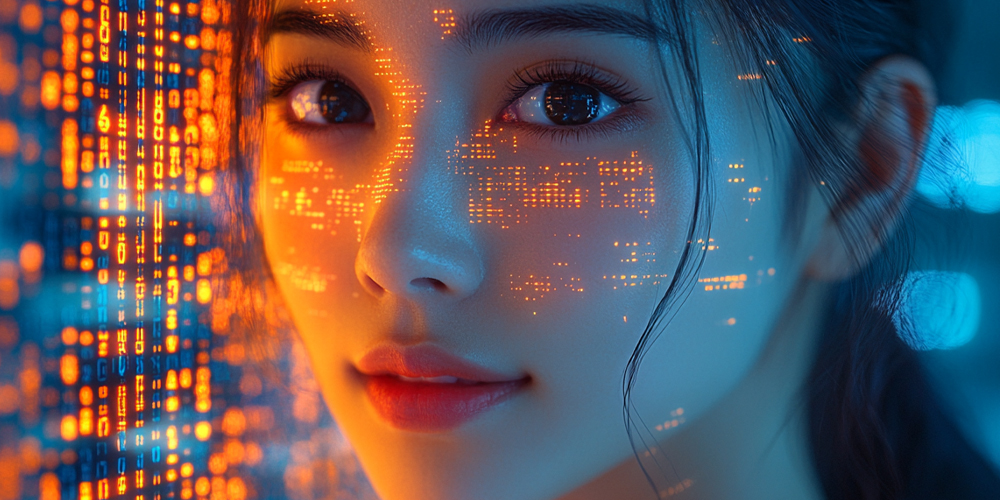Artificial Intelligence (AI) is changing the world. It’s already transforming industries and aspects of daily life, from healthcare to transportation. Over the next decade, these changes will only increase. AI will drive innovation, create new opportunities, and challenge us to rethink how we live and work. Let’s explore the key AI trends that will shape our world in the coming years.
AI in Transportation: Autonomous Vehicles and More
Autonomous systems are becoming a central part of AI’s impact on transportation. Self-driving cars, trucks, and drones will revolutionize how we move goods and people. These systems will become safer, more efficient, and more widely used in the next decade.
The Future of Self-Driving Cars
Self-driving cars are no longer just an idea. Companies like Tesla and Waymo are already testing autonomous vehicles. In the near future, these vehicles will improve road safety by reducing human error. They will also reduce traffic congestion, optimize travel routes, and improve overall efficiency. However, we must also address challenges like legislation, infrastructure, and the potential job losses in the transportation sector.
- Improved Safety: AI-powered vehicles will make faster and more accurate decisions, reducing accidents.
- Efficiency Gains: Autonomous vehicles will find the quickest routes, saving time and fuel.
- Job Creation and Displacement: New jobs will emerge in AI programming and vehicle maintenance, although some traditional driving jobs may be lost.
Autonomous vehicles will change not only how we travel but also how industries operate, especially logistics and transportation.

AI and Healthcare: Revolutionizing Medicine
Healthcare is another area where AI will have a profound impact. From diagnosing diseases to personalized treatment plans, AI is making healthcare more efficient and effective. In the coming years, AI will continue to advance, making healthcare more affordable and accessible.
Personalized Medicine
AI can analyze a patient’s medical history, genetic data, and lifestyle to recommend a personalized treatment plan. This approach will result in more accurate and effective treatments. Personalized medicine will also help doctors prevent diseases before symptoms even appear.
- Predictive Diagnostics: AI can detect health issues early, allowing doctors to intervene before they become serious.
- Customized Treatments: AI will offer tailored medication and therapy options based on a patient’s unique characteristics.
- Faster Drug Discovery: AI will expedite the process of developing new drugs, getting them to patients faster.
AI’s contribution to healthcare will improve the overall quality of care, making it more targeted and accessible.
AI in the Workplace: Enhancing Productivity and Innovation
AI will transform the workplace by automating mundane tasks, allowing employees to focus on more complex and creative activities. Automation will not replace jobs but will instead enhance productivity, making workplaces more efficient and innovative.
AI-Powered Automation
In many industries, AI is already automating tasks like data entry, scheduling, and customer support. By handling routine processes, AI will give workers more time to focus on higher-value tasks. In the future, more jobs will be automated, and new roles will emerge in AI-related fields such as programming, analysis, and system maintenance.
- Increased Efficiency: By automating repetitive tasks, AI frees up human workers to focus on innovation and problem-solving.
- Improved Decision Making: AI can process data quickly, assisting workers in making better, faster decisions.
- New Job Opportunities: AI will create new roles in programming, analysis, and system maintenance.
As AI integrates into workplaces, it will not replace jobs but will shift job roles and create new career paths, leading to a more productive and innovative workforce.
AI and Ethics: Addressing the Challenges
As AI becomes more integrated into our lives, it is essential to address the ethical challenges it brings. Issues like data privacy, algorithmic bias, and the misuse of AI technologies must be considered to ensure AI is used responsibly.
AI and Data Privacy
AI requires access to vast amounts of personal data to function effectively. This raises concerns about data privacy. Stricter regulations will be needed to ensure that personal data is protected and used ethically. Without proper safeguards, there is a risk that sensitive information could be misused or stolen.
Bias in AI
AI systems learn from the data they are trained on. If the data is biased, the AI will inherit those biases, which could lead to unfair outcomes. For example, AI could make biased hiring decisions or offer loans only to certain groups. To prevent this, AI developers need to ensure their datasets are diverse and free from bias.
- Improved Data Privacy: Stronger laws and regulations will help ensure that AI systems respect privacy and protect sensitive information.
- Eliminating Bias: By using diverse data sets and improving algorithms, AI can make fairer decisions.
- Ethical Development: Developers must adopt ethical guidelines to ensure AI is used for good and not harm.
Addressing these ethical concerns is crucial to ensuring that AI is used in ways that benefit society as a whole.
AI in Daily Life: Enhancing Convenience
AI is already a part of our daily lives, from smart home devices to virtual assistants. In the next decade, AI will become even more integrated into our routines, making life easier and more convenient.

AI-Powered Virtual Assistants
AI-powered virtual assistants, like Siri and Alexa, are already helping us with everyday tasks such as setting reminders, controlling smart home devices, and providing information. In the future, these assistants will be more capable, handling a broader range of tasks like booking appointments and managing our calendars. They will learn from our preferences and make personalized recommendations.
Smart Homes
Smart home devices, such as thermostats, lights, and security cameras, are becoming increasingly popular. These devices can be controlled remotely and even learn our habits, adjusting settings automatically to improve comfort and energy efficiency. In the future, AI will make these systems even smarter, allowing for more seamless integration into daily life.
AI in Entertainment
Streaming services like Netflix and Spotify already use AI to recommend content based on our preferences. As AI continues to evolve, these platforms will become even better at predicting what we want to watch or listen to. AI will help us discover new content tailored to our tastes and even help create content like music and movies.
- Personalized Recommendations: AI will suggest content based on your preferences, providing a more enjoyable experience.
- Smarter Entertainment: AI will learn your habits and preferences to suggest exactly what you want to watch or listen to.
AI will enhance daily life, making tasks more convenient and personalized, from entertainment to home management.
Conclusion
In the next decade, AI will continue to transform industries and improve daily life. From autonomous vehicles and personalized medicine to smarter workplaces and entertainment, the impact of AI will be profound. However, as we move forward, we must ensure that AI is used ethically and responsibly. By addressing challenges like data privacy and bias, we can ensure that AI benefits everyone. The future is bright, and AI will be at the heart of the transformation.










